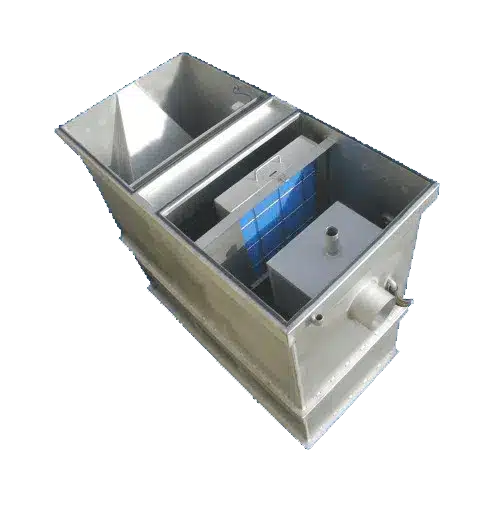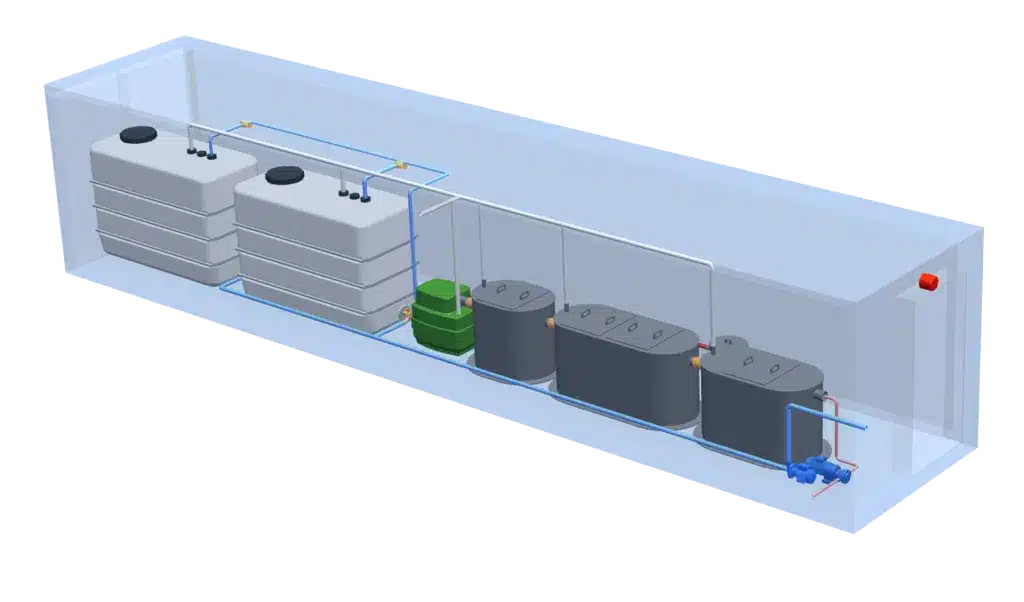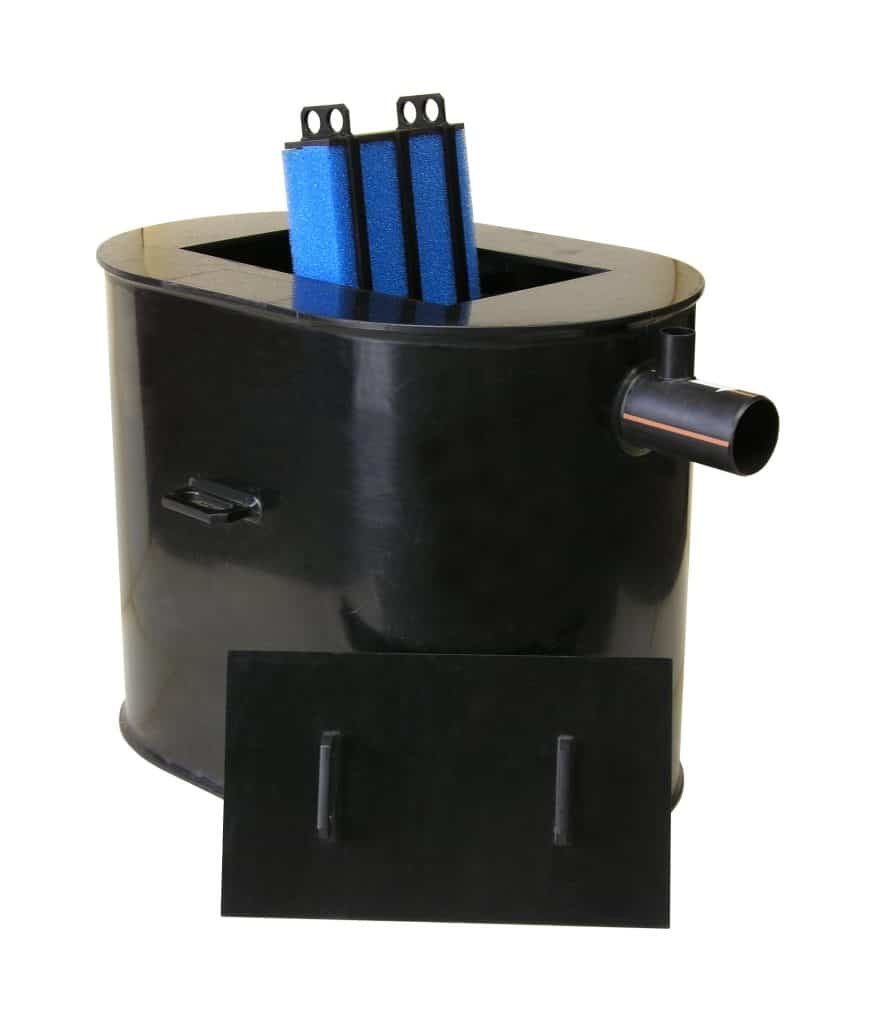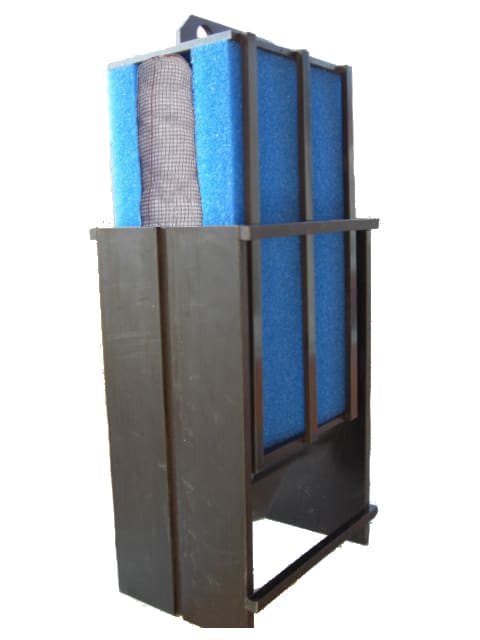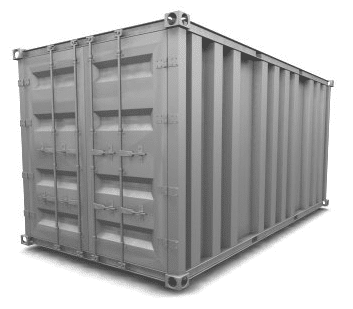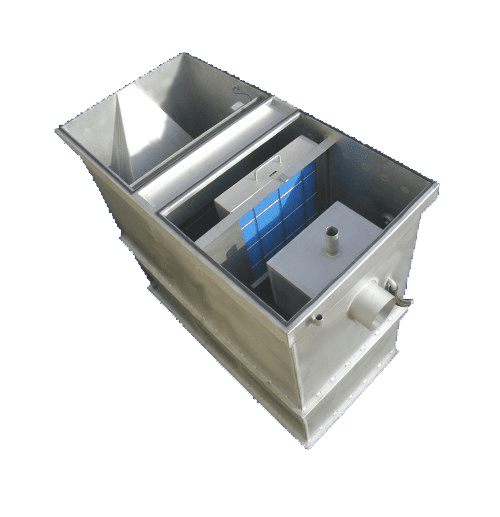Do you know about the hidden heroes protecting Connecticut’s waterways from pollution? Freytech Inc. Connecticut Above Ground Oil Water Separators are key to keeping our environment safe. They work hard to keep our waters clean and follow strict environmental laws.
In Connecticut, these devices are vital for managing stormwater. They remove harmful substances from runoff. Suppliers in Connecticut offer top-notch solutions that meet the state’s tough environmental rules. These systems are a must for businesses and towns, making sure pollutants don’t harm the ecosystem.
Meeting environmental standards in Connecticut is a big task. The state is dedicated to protecting its natural resources with advanced oil water separation tech. These systems often go beyond what’s required, with some removing pollutants at levels as low as 0.1 PPM.
Key Takeaways
- Above ground oil water separators are vital for Connecticut’s environmental protection
- These systems are crucial for effective stormwater management in the state
- Connecticut’s environmental compliance standards drive innovation in separator technology
- Advanced separators can achieve exceptionally high pollutant removal rates
- Oil water separators help businesses and municipalities meet regulatory requirements
Introduction to Oil Water Separators in Connecticut
Oil water separators are crucial in Connecticut for protecting our water. They take out oil, debris, and pollutants from stormwater and industrial wastewater. Many facilities must use them to keep our waterways clean.
Definition and Purpose
Oil water separators are systems that remove oil and grease from water. They are essential for treating industrial wastewater in Connecticut. These separators work by separating oil from water using gravity, making the water cleaner.
Importance in Stormwater Management
In Connecticut, oil water separators are key for managing stormwater. They catch pollutants before they go into storm drains, keeping our rivers and streams clean. Many industrial sites and parking lots use them to follow Connecticut’s stormwater rules and protect nature.
Regulatory Framework
Connecticut’s laws require the use of oil containment systems. The state’s Stormwater Quality Manual sets rules for their design and upkeep. Companies must follow these guidelines closely to prevent pollution and meet state rules.
Types of Above Ground Oil Water Separators
Connecticut Above Ground Oil Water Separators come in various designs for different needs. They are key in preventing spills and protecting the environment. Let’s look at the main types used in oil-water separator installation in Connecticut.
Conventional Gravity Separators
Gravity separators use the density difference between oil and water. In Connecticut, they usually have three chambers. The first catches sediment, the second separates oil, and the third holds clean water. This simple design makes them a top choice for many sites.
Coalescing Plate Separators
These separators use special plates to improve oil removal. The plates attract oil droplets. As water flows through, oil sticks to the plates and rises to the surface. This design is more efficient than traditional separators, making it great for areas with strict environmental rules.
Proprietary Separator Designs
Some companies offer unique separator designs. These custom systems can achieve better separation in less space. They combine features from other types for highly efficient spill prevention in Connecticut. Such designs are ideal for sites with limited space or complex needs.
Choosing the right separator depends on your specific needs. Factors like flow rate, space, and local rules all matter. Making the right choice ensures effective oil-water separation and meets Connecticut’s environmental standards.
Connecticut Above Ground Oil Water Separators: Design Considerations
Designing above ground oil water separators in Connecticut needs careful planning. It must meet state stormwater regulations. Choosing the right size, material, and installation is crucial for good operation and upkeep.
Sizing and Capacity Requirements
Connecticut has rules for the size of oil water separators. They need 400 cubic feet of permanent pool volume for every acre of hard surface. This makes sure the separators can handle stormwater runoff well.
Material Selection and Construction
Suppliers in Connecticut offer separators made from materials that don’t corrode easily. Fiberglass-reinforced plastic and coated steel are top choices because they last long and don’t break down from chemicals. These materials make the separators last longer and need less upkeep.
Installation Guidelines
Installing separators right is key for them to work well. Off-line setups are best for treating water flow. Upstream structures help control the flow and stop overloading. Suppliers like Freytech Inc. have special technology for better separating of oils like motor oil, diesel, and gasoline.
Keeping up with maintenance is vital for separators to work right and follow Connecticut’s stormwater rules. By following these guidelines, owners can manage stormwater well. This protects the environment and meets legal standards.
These separators are crucial in storm water systems. They process runoff to meet the US EPA’s Clean Water Act standards. With effective oily water treatment, facilities protect the environment and dodge big fines.
Maintenance and Operation of Above Ground Oil Water Separators
Keeping above ground oil water separators in good shape is key for following environmental laws in Connecticut. Regular care makes sure these systems work well in treating industrial wastewater. It’s important for facilities to check them every month and clean them every six months.
When maintaining these systems, it’s important to remove oil, grease, and other debris. This is usually done with vacuum trucks or special cleaning equipment. Remember to dispose of the polluted water and debris as per local, state, and federal rules.
Businesses in Connecticut need to keep records of their maintenance and inspections. These records should be kept for at least five years after the system stops working. Keeping these records helps show that you’re following environmental laws and treating wastewater properly.
Following these maintenance steps helps keep above ground oil water separators running smoothly. This effort not only helps Connecticut meet environmental standards but also helps manage stormwater and prevent pollution.
Conclusion
Connecticut Above Ground Oil Water Separators play a key role in managing stormwater. They treat runoff from areas with lots of pollution, helping with environmental rules in Connecticut. These systems are great at keeping oil and other pollutants out of water, protecting our water resources.
These separators work best when they are designed, installed, and maintained right. They can’t catch all pollutants, but they do a lot to improve water quality. Companies like Freytech Inc. are making these separators better, offering new solutions that go beyond what’s required.
In Connecticut, protecting the environment is a top priority. Above Ground Oil Water Separators are a big part of that effort. They help keep our water clean, making sure it’s safe for the future.


